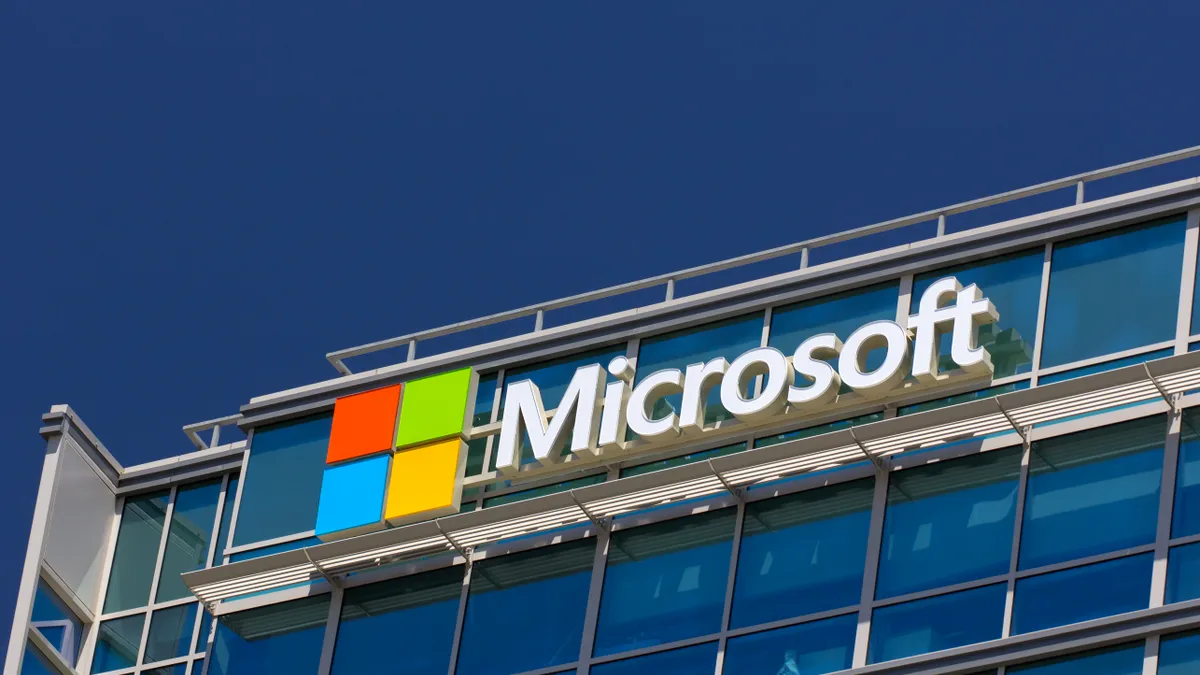Dive Brief:
- With $2.5 trillion in IT spend on the line, 23% of which is cloud-based, Microsoft is bullish about its opportunity in the enterprise market, according to Judson Althoff, EVP of Worldwide Commercial Business at Microsoft, at a Citi Global Technology Conference in September. Cloud-spend is growing 50% annually in platforms and 30% in software as a service — a $20 billion a quarter segment Microsoft already holds a dominant 17% market share in, according to Synergy Research Group.
- Microsoft is growing at twice the speed of market in the cloud, success Althoff attributed to the company's business model, trust factor and hybrid capabilities. On the latter, "[w]e've been doing hybrid before hybrid was cool," he said. Moving forward, there's a lot of opportunity in highly regulated markets where many companies still haven't carried out significant cloud adoption; building enterprise trust and credibility will be key for the cloud infrastructure provider that will prevail in these markets.
- Some of the credit to Microsoft's success with enterprise customers falls to a revamp of technology capabilities in the sales arena. Althoff hired more than 3,000 developers in the last year that rotate between writing code for the business and working with customers on capabilities such as Kubernetes.
Dive Insight:
To prioritize the integration of artificial intelligence throughout its capabilities, Microsoft underwent a major reorganization earlier this year, splitting into "Experience & Devices" and "Cloud + AI" teams. The reorganization marked the long-term shift to enterprise customers and the intelligent edge.
The reorganization grouped engineering resources around solution areas and industries, instead of product lines, Althoff said. In addition to the revamping of the sales team, the transformation also included creating a customer success organization that works with customers after a deal to infuse Microsoft tech into their business and a revamp of the partner ecosystem.
As a global leader in infrastructure, platform and software as a service, Microsoft has solidified its No. 2 ranking with heavy investments in hyperscale, multicloud and artificial intelligence. And the company is benefiting by staying mostly out of the techlash that more consumer-facing companies like Google and Amazon are being grilled under.
Long-term differentiation and pricing power for Microsoft will come from the company's platform services, Althoff said. He sized up the company's biggest competitors in cloud and software:
- Amazon Web Services is "the big dog to chase in all of this." But "Amazon is, frankly, attacking a lot of industries right now. And they're pretty bold and open about it" — and customers are "not interested in going to the cloud with somebody who is interested in taking [their] business."
- Google Cloud Platform "is seen actually less of a direct attack, but a huge tax burden if you will," because of its search and ad business.
- Salesforce has "a great solution ... But it's expensive, and customers aren't seeing the incremental value for what they want to charge."












